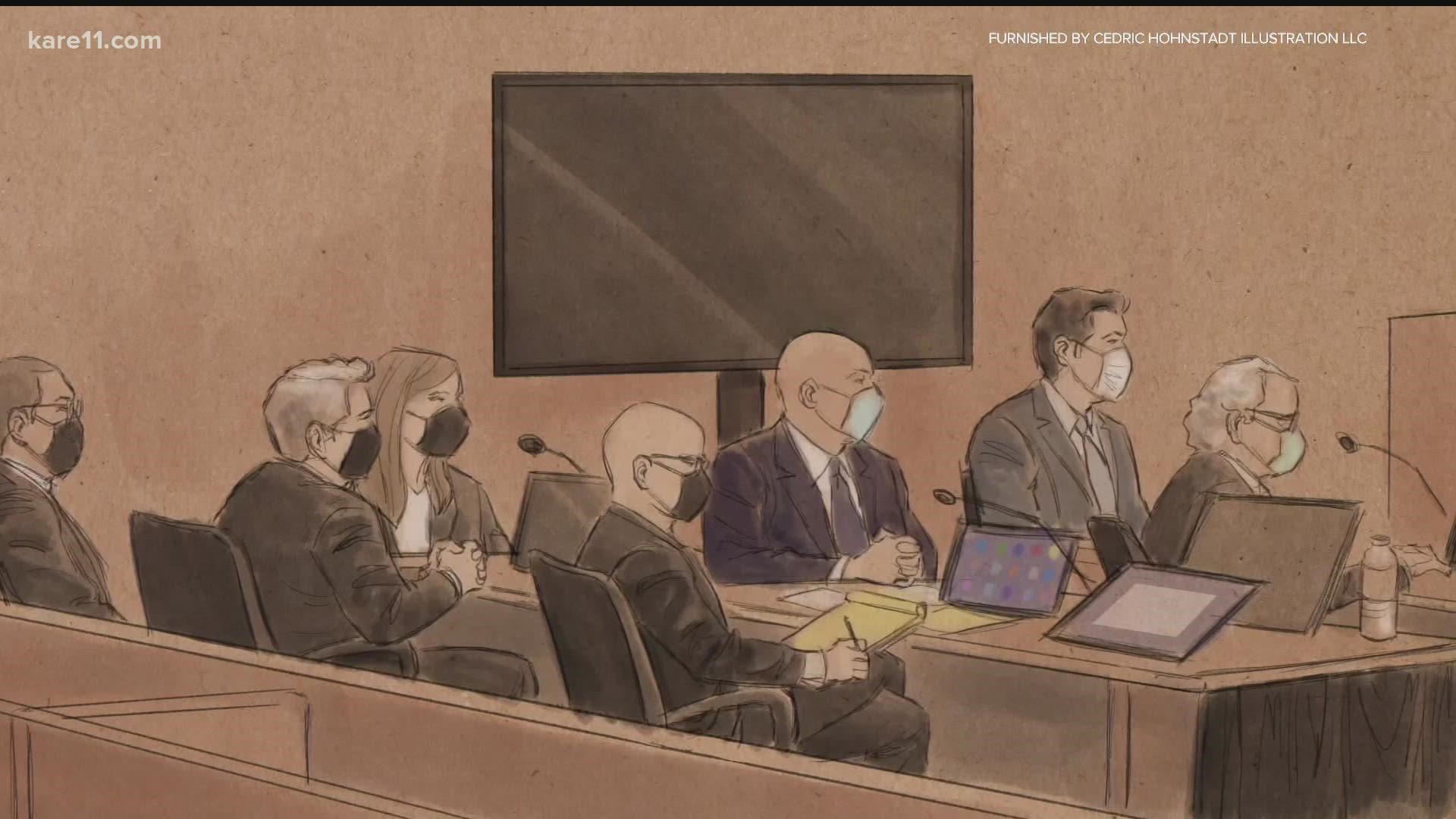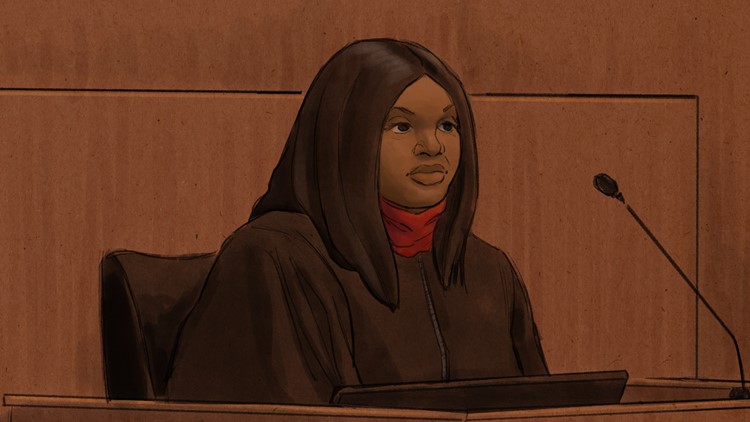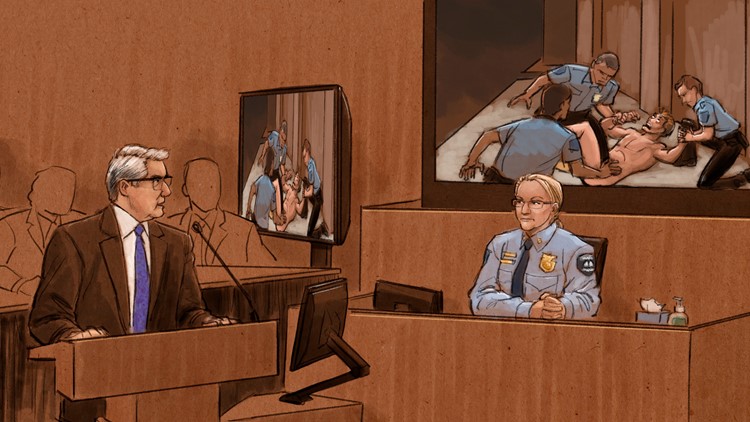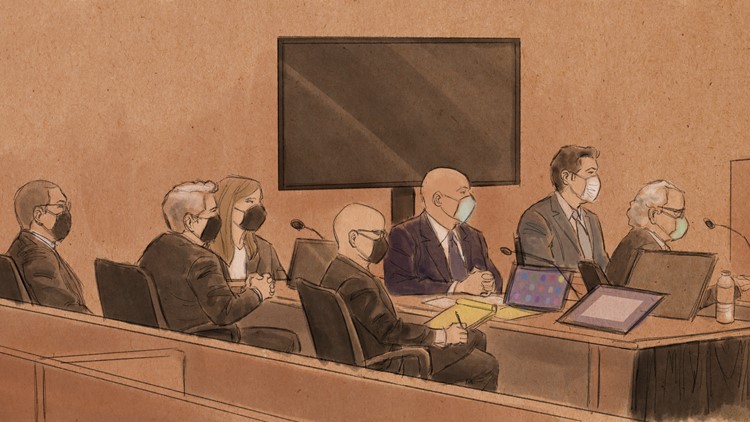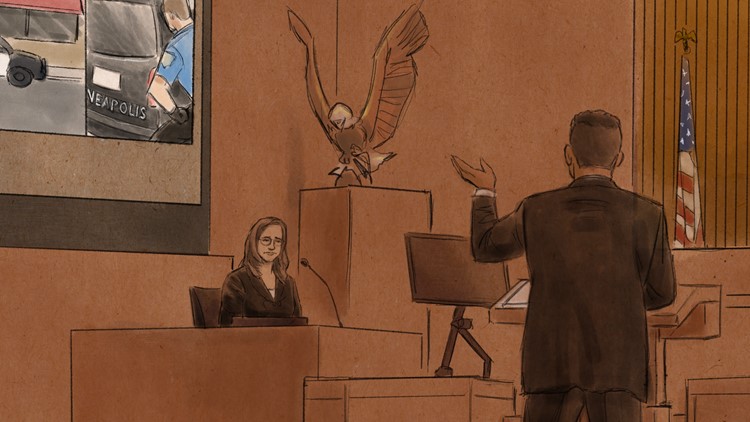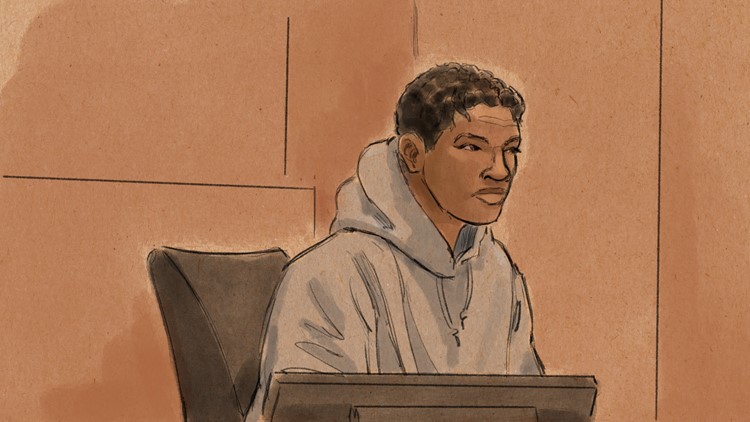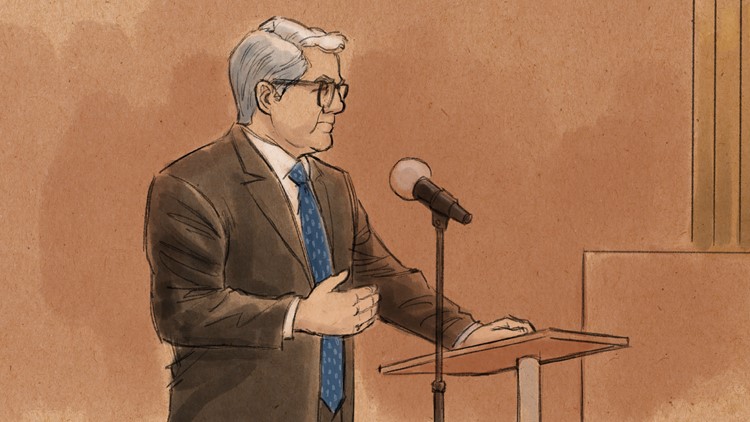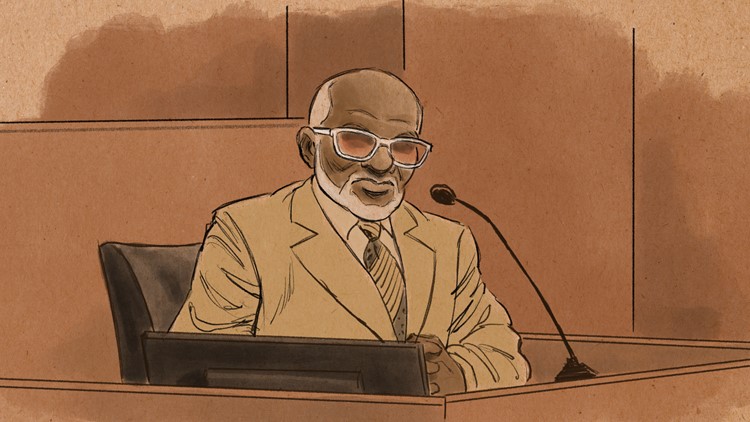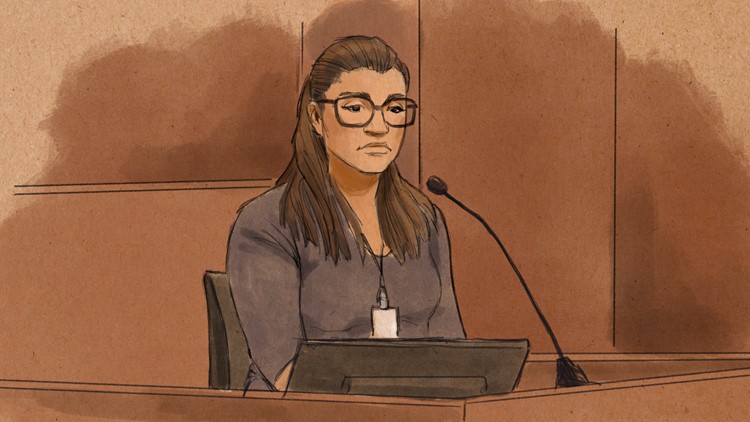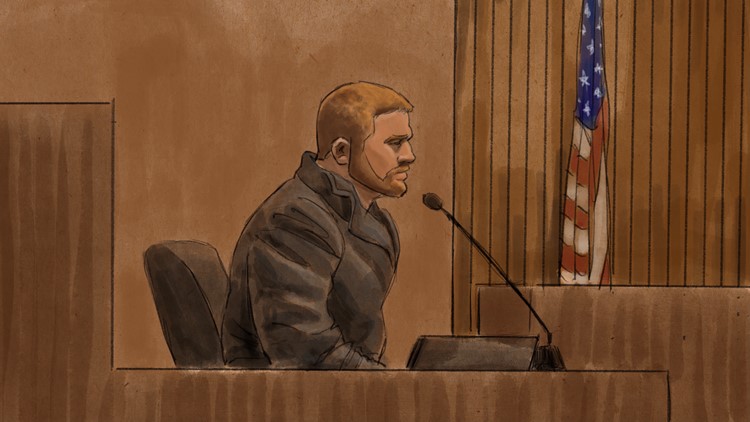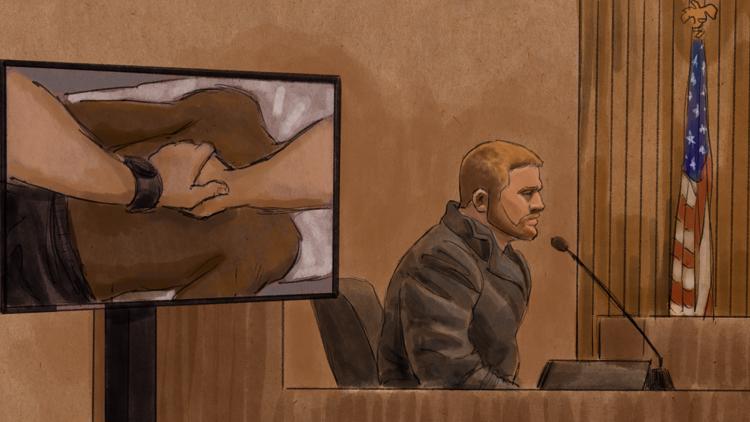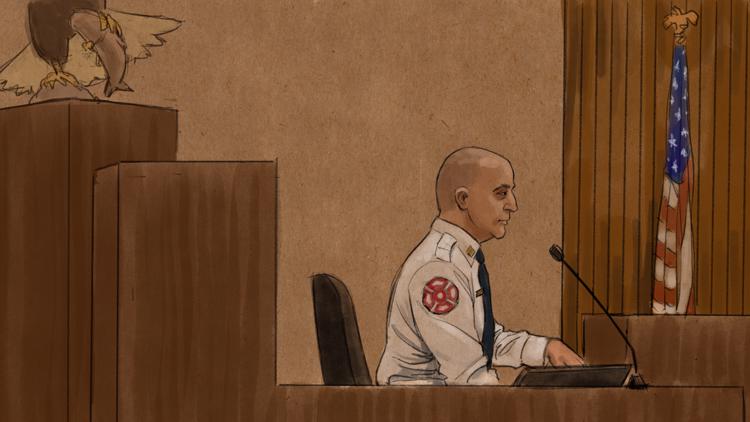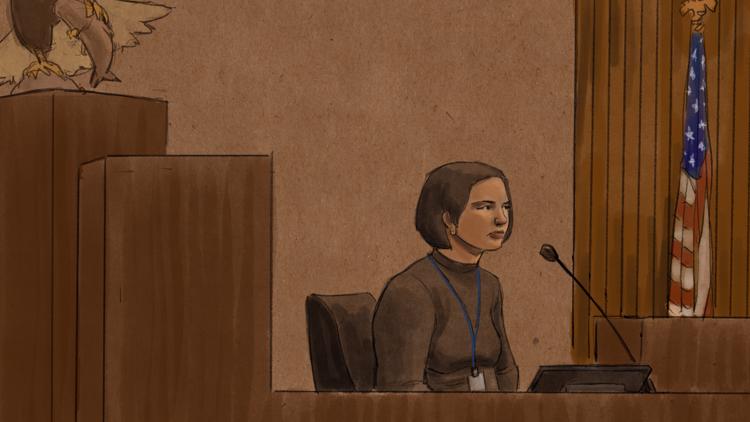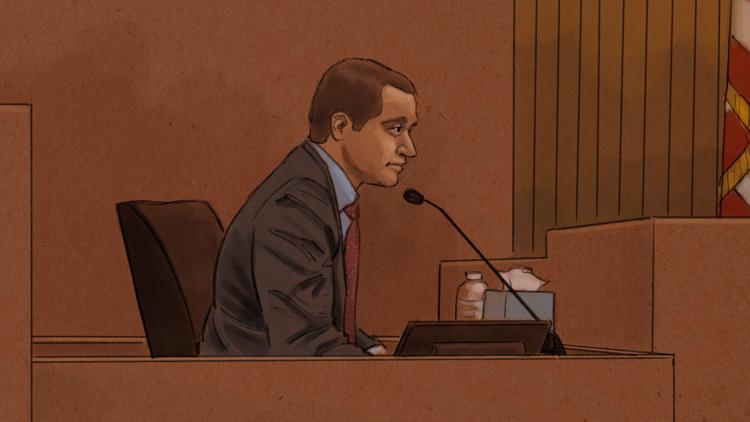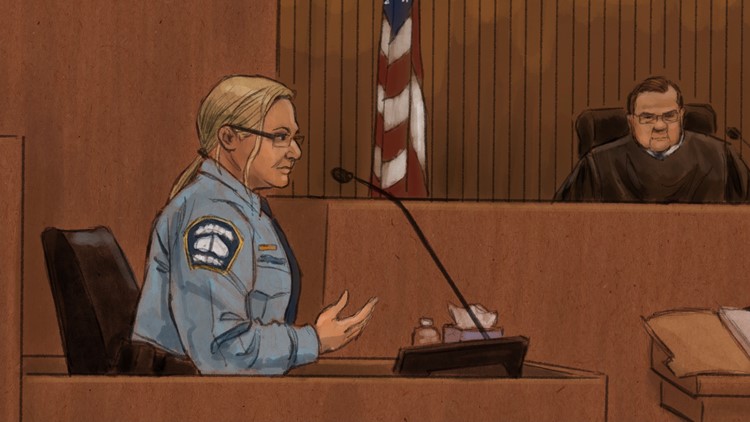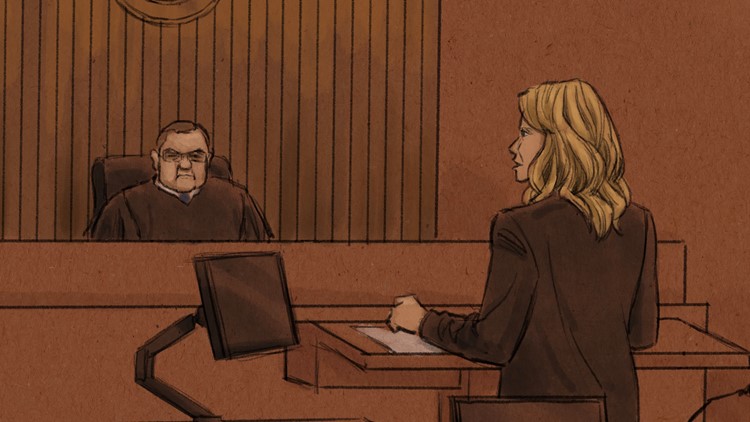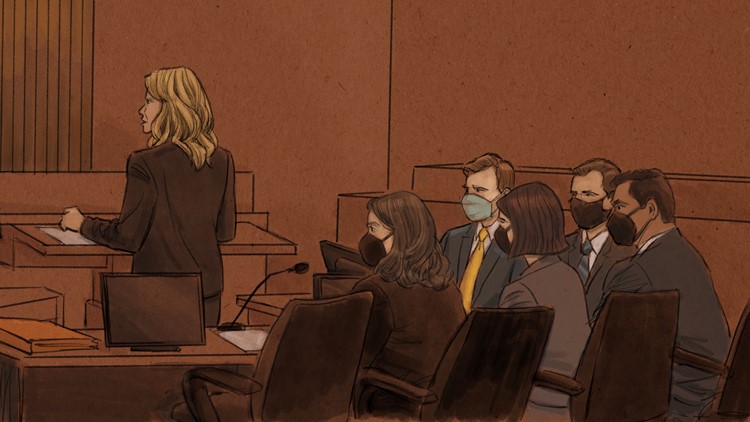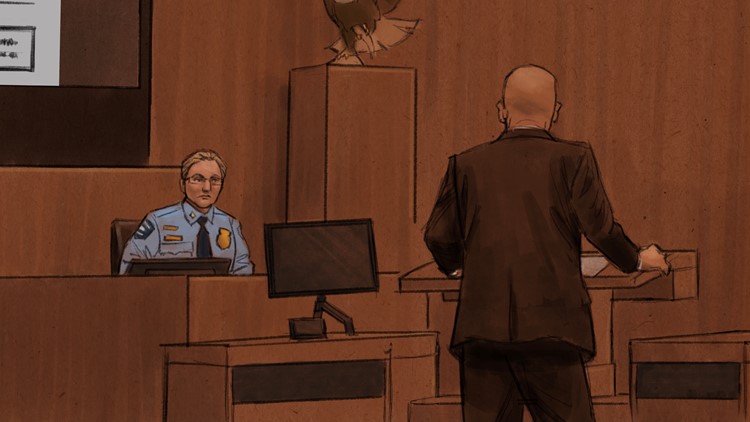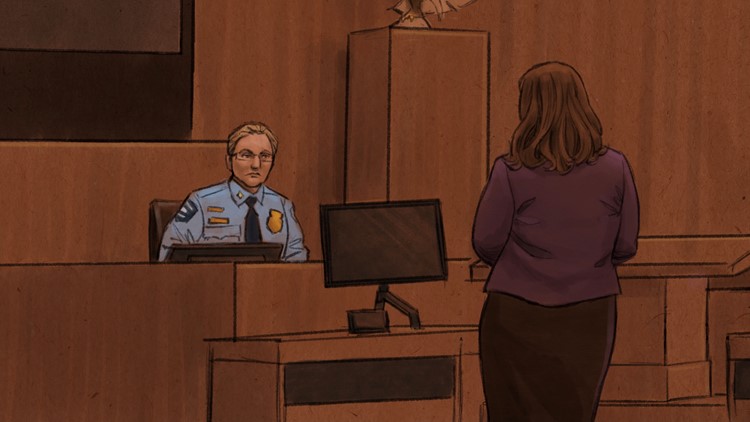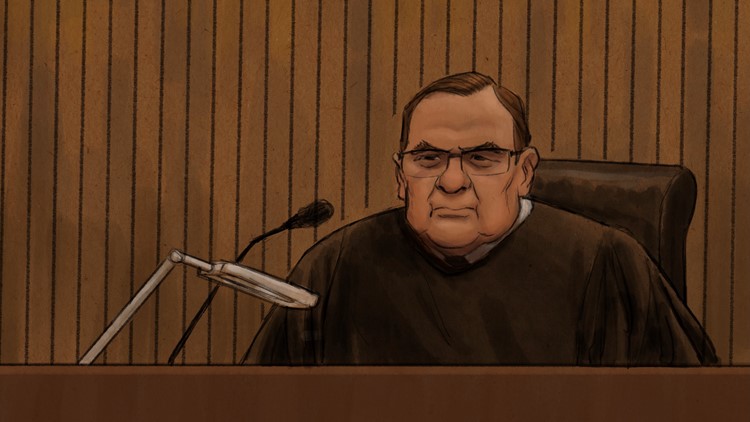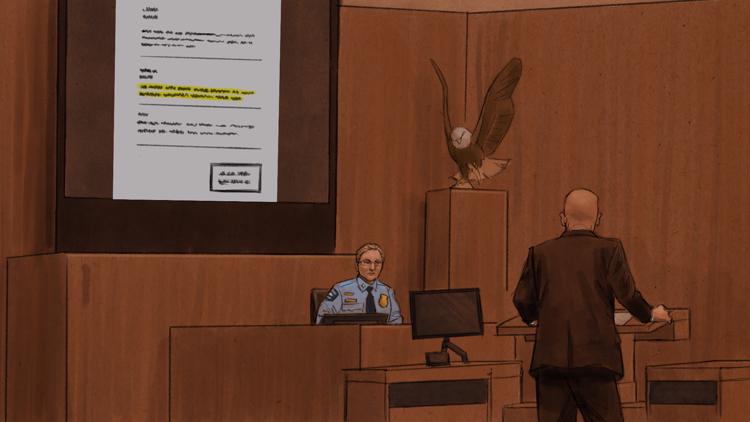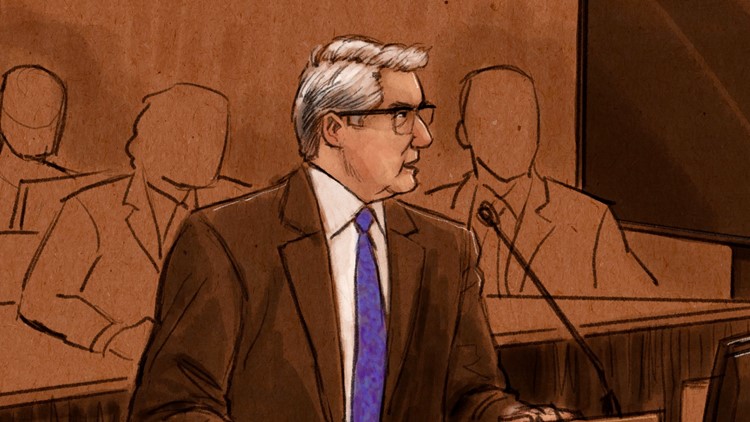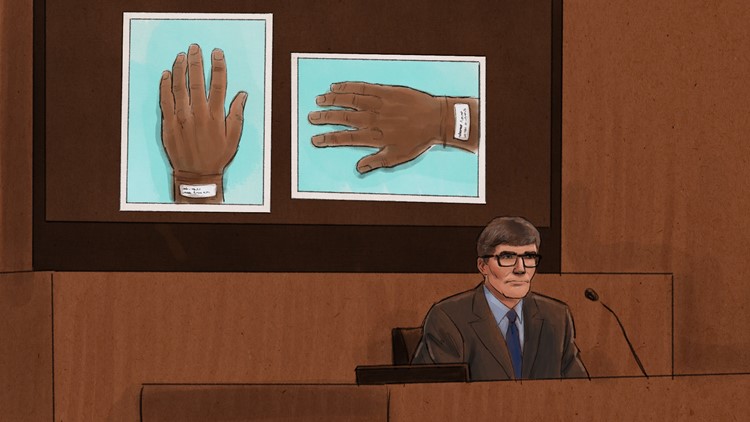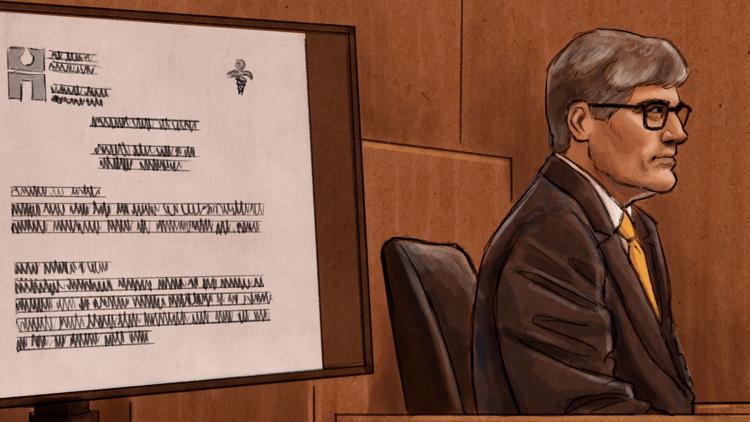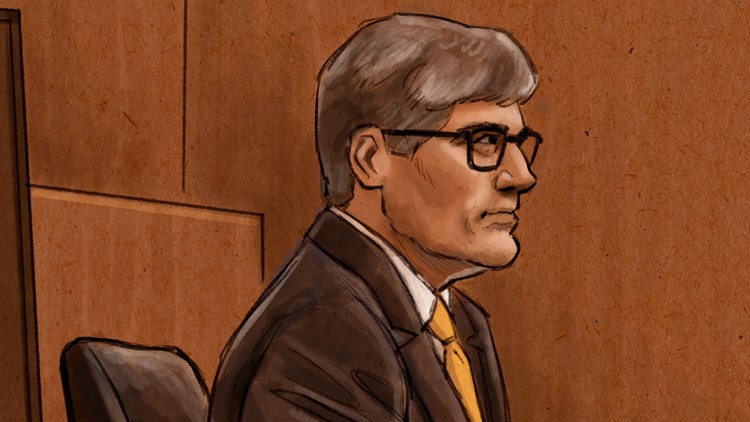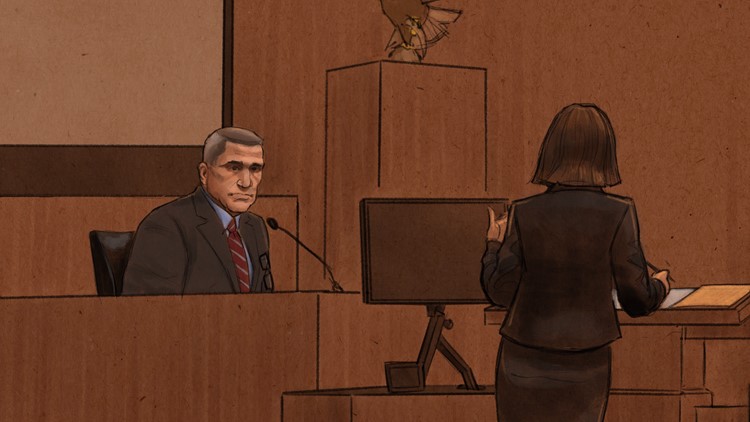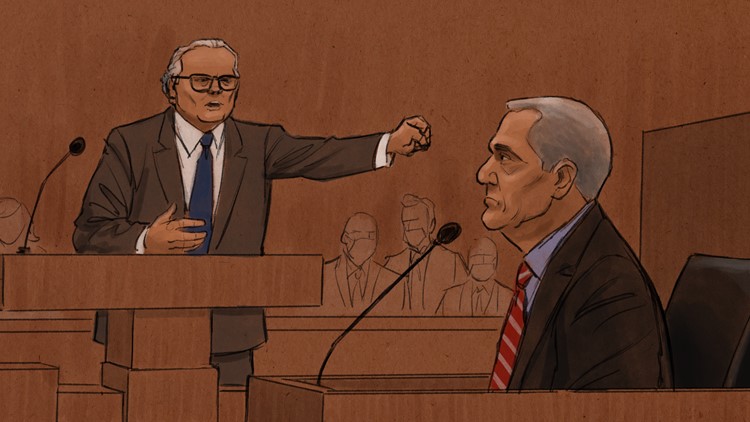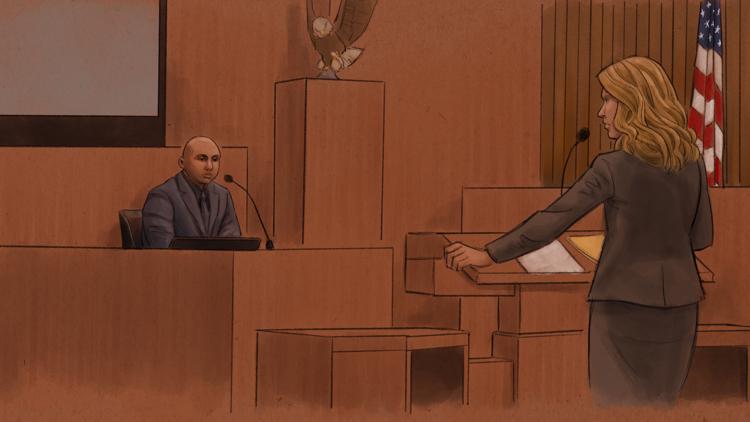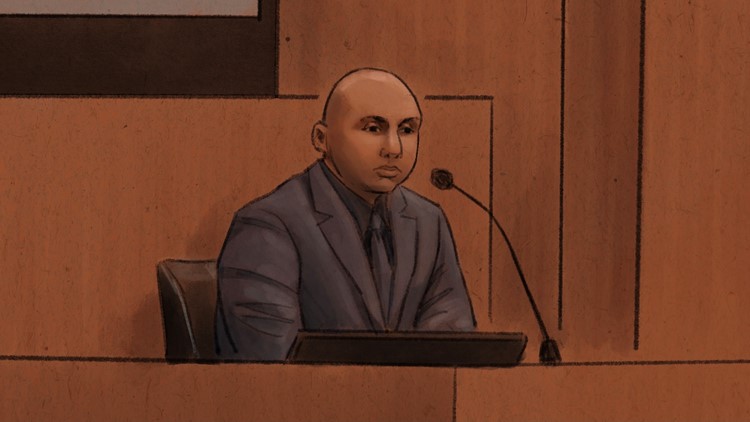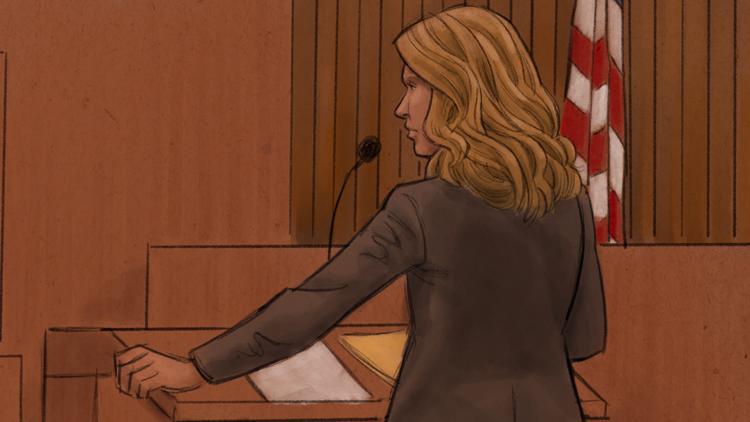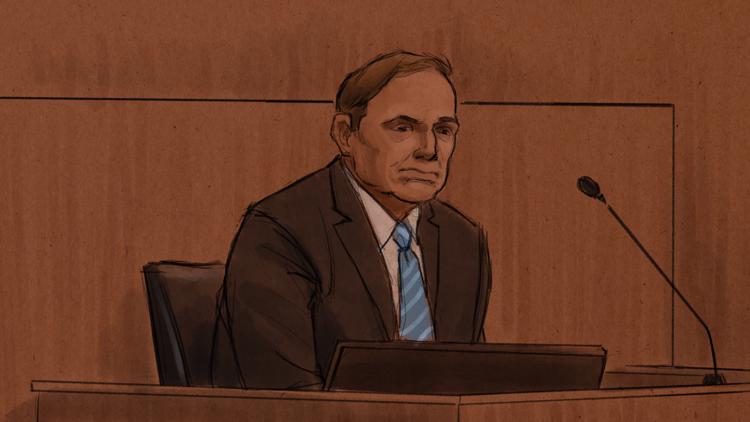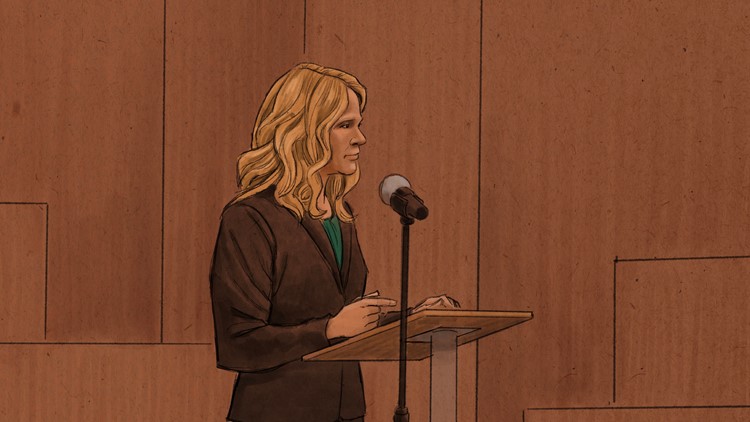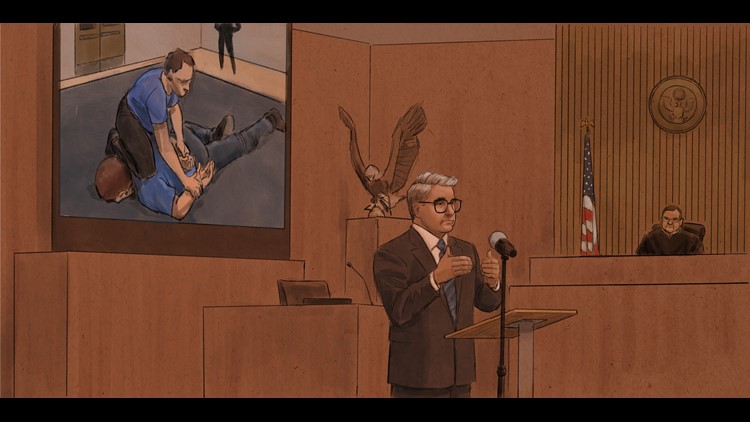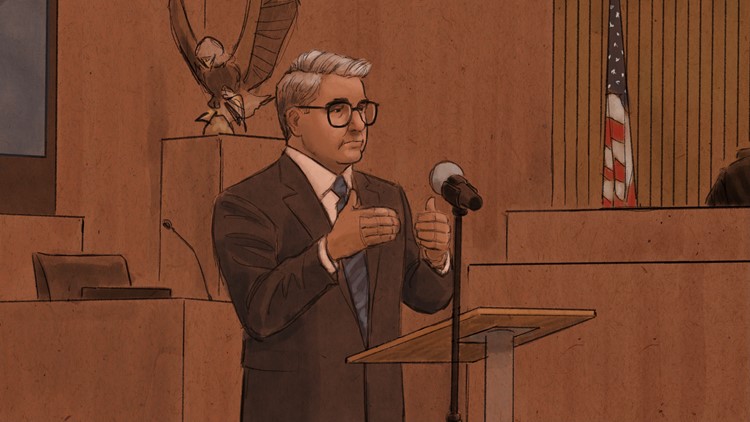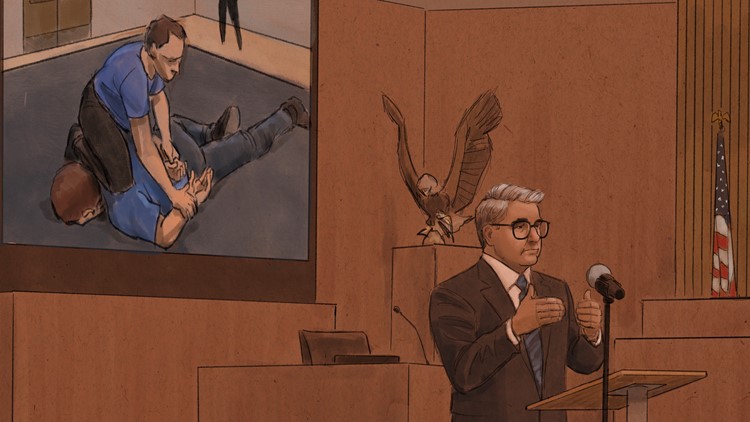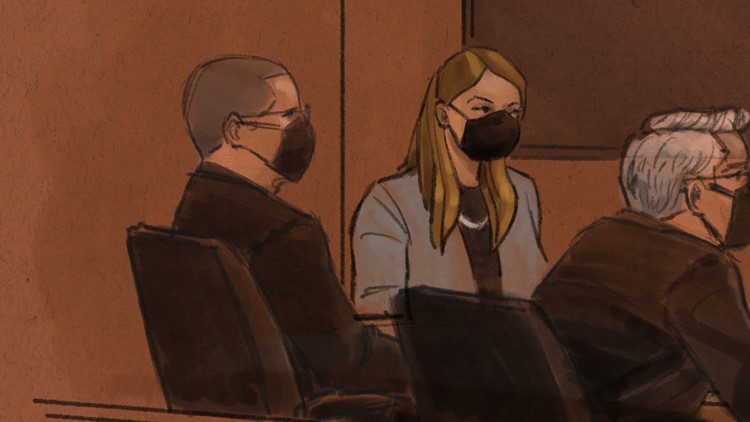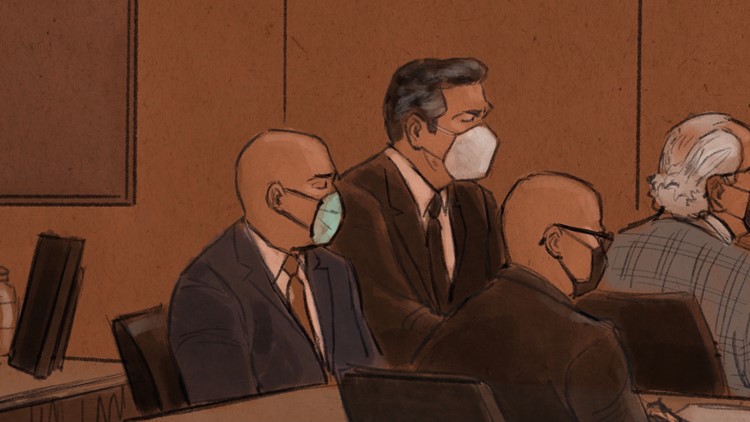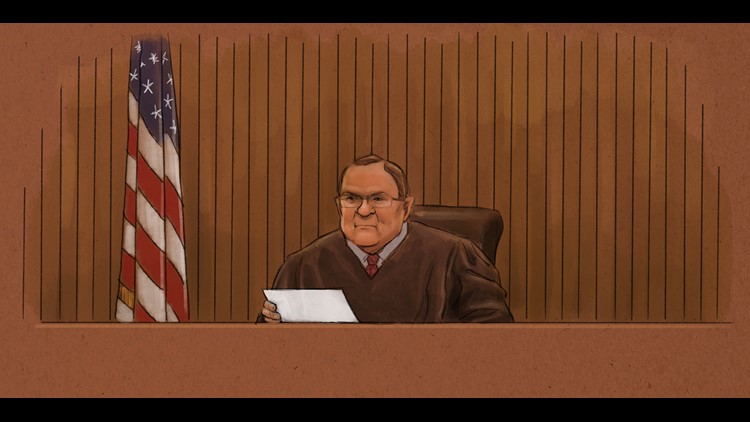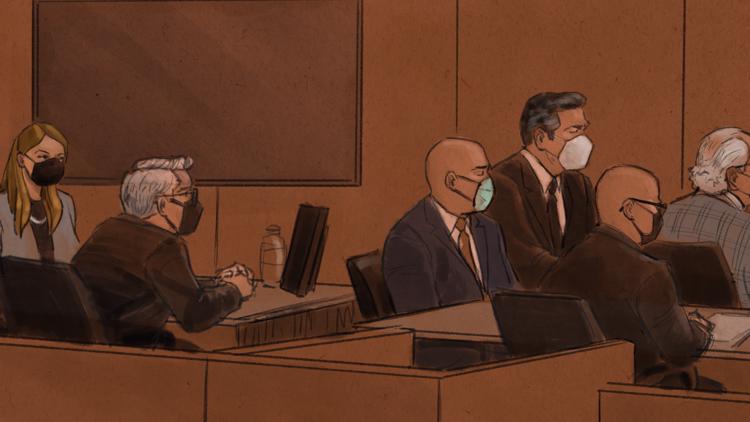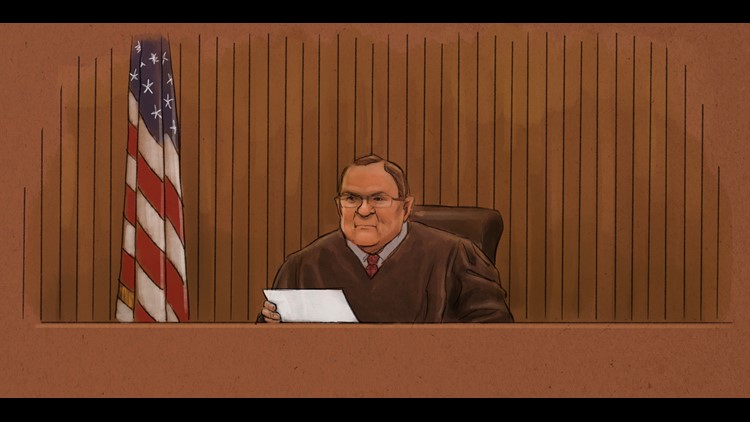ST PAUL, Minn. —
- MPD training expert returns to stand to elaborate on 'Duty to Intervene'
- ER doctor who treated Floyd testifies on 'excited delirium'
An expert on training and policy was back on the stand first thing on Friday in the federal trial of three former Minneapolis police officers, as prosecutors went deeper into the training the defendants received.
J. Alexander Kueng, Thomas Lane and Tou Thao are charged with failing to provide George Floyd with medical care as fellow officer Derek Chauvin knelt on his neck for more than nine minutes. Thao and Kueng face an additional count for failing to stop Chauvin, who was convicted of murder and manslaughter in state court last year.
It became evident Friday that the defense attorneys are attempting to flip the script on prosecutors with the commander in charge of training on the witness stand — blaming culture and a lack of training at the Minneapolis Police Department.
A dramatic audio clip included with Minneapolis police training materials was played by Kueng's attorney Thomas Plunkett, which he said demonstrated an "us versus them" attitude instilled in officers through training.
Inspector Katie Blackwell defended MPD's training under cross examination. She oversaw the program for MPD and assigned Chauvin as a field training officer. Chauvin then was the FTO for Kueng.
Plunkett also made sure the jury is aware the U.S. Department of Justice launched an investigation into the Minneapolis Police Department and the training that Blackwell led.
Earlier, Blackwell testified that Kueng, Thao and Lane all violated MPD's "Duty to Intervene" policy by failing to stop Chauvin from using excessive force. Plunkett went on to ask Blackwell in cross if she was aware many officers aren't even aware MPD had such a policy. She said that would come as a surprise to her.
Plunkett hammered away at the fact Lane suggested to roll Floyd over three times, but Chauvin said "no."
"He was denied by a 19-year veteran who, three shifts earlier, was Kueng's FTO?"
"Correct," Blackwell answered.
One thing to note, however, is that breaking MPD policy does not mean the officers are guilty of breaking federal law, but it is important testimony for the prosecution because the charges use phrases such as "failed to intervene."
The trial is scheduled to resume Monday at 9:30 a.m.
LIVE UPDATES:
3:45 p.m.
Court came back from its afternoon break with Plunkett's continued cross examination of Blackwell.
Blackwell agreed that an FTO is the closest thing to a supervisor that a recruit has, as Plunkett pointed out that Chauvin was Kueng's FTO at the time of Floyd's murder. She said that she put together the FTO's leadership course at MPD, but could not remember if there was intervention training was part of that level of training.
She agreed that the aptitude of FTOs aren't graded or tested, but said she "wasn't aware" of any officers on the street who did not know about the intervention policy. Plunkett showed Blackwell the MPD FTO Handbook, leading Blackwell to agree that it does not go over the duty to intervene.
Plunkett then went through the phases of police training, pointing out that Kueng and Lane were both fresh out of their FTO program, and suggested that it was one of the first times the officers were put together as rookies.
Blackwell then agreed that by policy, Lane would have been the officer in charge of the scene, and Chauvin disobeyed Lane's request to roll Floyd over to his side.
2:30 p.m.
As the prosecution wrapped its direct questioning of Blackwell, she told the courtroom that it was her opinion that none of the three officers on trial followed the MPD's Duty to Intervene policy as Derek Chauvin used unreasonable force against George Floyd.
Lane's attorney, Thomas Plunkett, started his cross examination of Blackwell by pointing out that the U.S. attorney general is investigating the MPD and its training programs, which Blackwell used to help oversee. Plunkett went on to discuss Blackwell's decision to appoint Chauvin as a field training officer, and reiterated to the jury that Blackwell and Chauvin had known each other for years.
Plunkett then went on to talk to the policies and expectations of a field training officer at MPD, and what goes into that particular training. Plunkett asked about the possibility of an officer using a leg in a neck restraint, which Blackwell said officers are permitted to do, however, she said the MPD does not train on the use of neck restraints or chokeholds.
Blackwell agreed with Plunkett that much of what is written about intervention in the MPD's manual is read by trainers, not recruits.
Plunkett then shared an audio recording with the courtroom that Blackwell agreed is shown to MPD recruits — a scene from "Any Given Sunday," featuring Al Pacino.
11:00 a.m.
Prosecutors showed police body camera video to the court asking Blackwell whether she believed the officers' actions with Floyd were consistent with MPD training. She told the court she believed the actions of Chauvin, Lane and Kueng were all "inconsistent."
Blackwell said Floyd "bounced between active resistance and active aggression," before he "started to not do anything." She told the court that officers would have been justified in using force when he was actively resisting, e.g. kicking, but she said force, a neck restraint in particular, would not have been appropriate after Floyd came down to "passive resistance" in restraints.
She further said that when someone stops resisting and is restrained, MPD training says to put them in a side position and to start administering medical aid if necessary.
10:45 a.m.
Minneapolis Police Department Inspector Katie Blackwell is currently the department's 5th precinct inspector, but was the commander of the department's training division in May 2020 when George Floyd was killed. The prosecution opened Friday by showing her a slide that Thao was shown during refresher training in 2018 regarding the department's "Duty to Intervene" policy. It reads "If you're present when inappropriate physical force is being applied, or is no longer required, it is your DUTY to stop the application of force."
At one point Earl Gray, defense attorney for Thomas Lane, made it clear for the record that Lane was not on the department in 2018.
Prosecutors then showed jurors a training video detailing how to correctly subdue a suspect. It explains how a person struggling to breathe can end up struggling even more when their chest is compressed in prone position.
The video warns that a suspect can die if not turned to their side.
KARE 11's Lou Raguse expects cross examination from the defense to be vigorous after Blackwell essentially implied Thursday that the former officers broke department policy by not intervening as George Floyd lay dying under the knee of fellow officer Derek Chauvin in May of 2020.
On Thursday Blackwell testified that the department teaches officers to use the lowest amount of force necessary and "once we gain compliance, the force stops." She also detailed the "Duty to Intervene" policy, something KARE 11 reporter Lou Raguse says is key to the case against Kueng, Lane and Thao. Blackwell told jurors that "we have an obligation" to stop or attempt to stop another officer when force is being inappropriately applied or is no longer required.
But Raguse emphasizes that breaking policy doesn't necessarily mean breaking the law, and expects defense attorneys to make that clear to the jury Friday.
Dr. Bradford Langenfeld, the ER physician who pronounced Floyd dead, essentially gave the same testimony he gave during Chauvin's murder trial. Langenfeld testified that he believed Floyd died from a lack of oxygen, possibly from mechanical asphyxiation. He added that every minute that passed without CPR being performed, generally lessened the chance of survival 10-15%.
Langenfeld said paramedics told him when they arrived at the scene, Floyd did not appear to have a pulse and no one on scene had initiated CPR before paramedics arrived.
The ER doctor told jurors that paramedics told him they had worked on Floyd for approximately 30 minutes to revive him before they arrived at the hospital.
Langenfeld said based on Floyd’s condition and details surrounding his encounter with MPD, he concluded the most likely scenario was that Floyd suffered from hypoxia, which is characterized by having low oxygen. Langenfeld said Floyd was in his care for about 30 minutes before declaring him dead.
Defense attorneys asked Langenfeld about the possibility of Floyd suffering from excited delirium – a controversial diagnosis not recognized by the American Medical Association.
On redirect questioning, Langenfeld testified that based on the video footage he viewed in the months after treating Floyd, he did not believe Floyd was at the level of severe agitation characterized as excited delirium that could lead to cardiac arrest.
Inspector Katie Blackwell spent two stints on the stand Thursday, broken apart by Langenfeld's testimony as the doctor had scheduling limitations.
The 5th precinct inspector spent the majority of the day testifying about the training MPD officers receive, and how those policies are taught — including the duty to intervene.
Blackwell read the policy to jurors, saying it's the duty of every officer to "either stop or attempt to stop another sworn employee when force is being inappropriately applied or no longer required."
Before the prosecution could launch into its next line of questioning, Judge Magnuson ended testimony early, saying a juror had to tend to a personal matter.
GALLERY: Federal courtroom sketches from the trial of three former Minneapolis officers
Watch more local news:
Watch the latest local news from the Twin Cities in our YouTube playlist:

